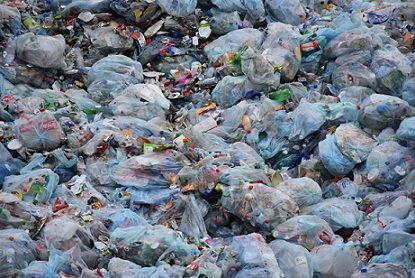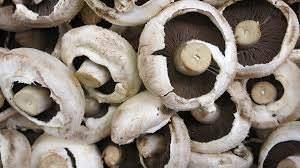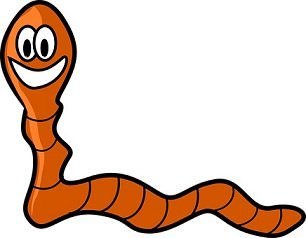Plastic Pollution: The Feasible Panacea To Curb This Menace [Alternatives To Synthetic Plastics]
Introduction
Plastics; particularly bottles; are majorly used in our daily lives - from bottled water, to beverages and all whatnot. And most times, these plastics are almost not properly disposed, and over-time, they would be compiling and ultimately disrupting the balance of our Mother Earth and our ecosystem. And for some reasons, some (if not majority) of the used plastics are synthetic (majorly from petroleum products - Like the popular Polyethylene Terephthalate; PET, used in soft drinks bottling), which has made them almost non-biodegradable. And these add up to a menace known as "Plastic Pollution". What is the feasible panacea to this menace? This is exactly what we would look at in this post.

[Image Source: Pxhere. CC0 licensed]
Taking a look at the above image, you would have an insight on what plastic pollution is all about. Maybe this statistics would give you an idea: A revelation has been made that about 500billion plastic bottles are used each year throughout the world (that's above 1 million bottles per minutes) [ref], and this figure has been seen to increase at an alarming rate. And majority of these plastics are disposed off into (or washed into) the body of water, also leading to water pollution. Imagine what the fate of our marine habitat would be when over 8 million tonnes of plastic bottles are deposited each year into them. If moves are not being made, the marine creatures may soon start dying off; oh!! that has already started happening (even here in this part of the world; the local stream around where I live is now like a nightmare, because of pollution).
And the truth is; it wouldn't be feasible to just pass a law prohibiting the use of plastics - I mean; they have already formed an integral part of our lives. But hey! There's a comfy here: Alternatives have arisen to bring a solution to this; while we still enjoy the usage of our plastics - so it's now up to us to choose to use them and save our environment. Let's look at them:
Edible Plastic
Now that sounds like a cool idea right? Ain't no feeling as divine as eating a delicious meal or drinking a finely brewed wine down to the last drop; but what if I tell you that you can consume the container alongside the food or drink, would you believe me? Well, the idea has already arisen; to engineer plastics with protein-based materials (particularly milk protein casein) - To say the world is going "green" is to say the least. This plastic; which looks almost indifferentiable from the regular plastic is created from "casein" specially harvested from milk (cow), but for added strength and solidity, a particular polysaccharides; pectin; is added to the casein.
Maybe we're drawing closer to bidding a permanent farewell to the conventional PET plastic we're used to. And not just that; this edible plastic is created to be a once-for-all kind of plastic (just like your ice cream cone), in other words; after consuming the content, you would consume the container too. And with attempts to add flavours, vitamins, minerals, and other supplements to the plastic; it could go mainstream soon, and the demands would increase (I mean, who wouldn't want a delicious plastic container?). And as a matter of precision, an increase in acceptability and demand of the edible plastic would proportionately lead to a decrease in the usage of PET. Maybe you would want to see how this edible plastic looks like, and how they are made - I've got you a video from YouTube.
The war against plastic pollution is gradually being won. But just for people that may not feel comfortable; for some reasons; to consume plastics, which other type of plastics can be used in lieu of the edible plastic?
Mushroom Plastic
Still in the spirit of going "green" and circumventing the menaces associated with plastic pollution, another idea has been raised to make plastics biodegradable. The PET which I made mention of earlier takes somewhat of 500years to degrade [ref], and with these number of years, more plastics would have been used, thus, increasing the quantity of plastics to be biodegraded. But it has been discovered that plastics can be produced from vegetable, and a major contender is the mushroom (from the mycelium of the mushroom - which is the vegetative part). I'm sure this is already sounding bizarre to the uninitiated, but just hang on.

[Image Source: Pixabay. CC0 licensed]
How is this plastic made? Majorly, agricultural wastes and byproducts (which include husks from seeds, dried foliages, tree barks) are gathered and hydrated a little to provide a suitable environment for the growth of fungi (and yes; mushroom is fungi). But to give a little boost to these mixtures, the mycelium of mushroom is added to seed the agricultural waste, after which they are packaged and left in a suitable bio-reactor for the mushroom to grow over the waste. While at the growth stage; and owing to the fact that mycelium is majorly fibrous; they can be easily shaped to your choice. Then after this process of shaping and molding, the drying process would be initiated to consolidate the mold, and boom!! Your plastic is made.
Unlike the regular plastics we have around, when mushroom plastic is discarded in the environment, the decomposition process would be quick. And not just that; on decomposition; they also add nutrients to the Mother Earth - so they are; by usage; serving dual purposes - as container for food, and as manure for the earth. Also, the advantage of this plastic over the edible plastic is in the area of cost-efficiency. The mushroom can easily be grown.
But even with all these alternatives, some people would still prefer to be using and discarding the synthetic plastics indiscriminately. So to save our Mother Earth, another idea has arisen, which would also allow for the usage of your regular synthetic plastics:
Plastic-Eating Wax Worm
Now you're happy with this option right? It has been discovered that a particular type of caterpillar from Wax Moth (Galleria Mellonella) produces a secretion that is capable of dissolving plastics. Humorously, this discovery was made by accident by Dr Federia Bertocchini [ref].

[Image Source: Pixabay. CC0 licensed]
Federia Bertocchini kept bee hive in his house, but they were attacked by these caterpillars, and in the attempt to ward off these creature from his precious bee, he secured them in plastic polythene bags (I wonder what he was thinking by that act, lol), but something remarkable happened. The worms started feasting on these polythene bags, and that piqued his interest. And because he also works with the Institute of Biotechnology; Spain, he took some samples to the lab, and on further study, it was found that it is the saliva secreted by these worms that gets the job done [ref].
And very awesome is the fact that the action of these worms is faster when compared to the biodegradation of bioplastics (like the mushroom plastics) naturally. But a very serious concern has been raised with the use of these worms to control plastic pollution: Releasing millions of these worms in a plastic-polluted area would not be a problem, but how do you control them - or rather, make them to selectively dissolve only the plastic waste and leave other useful plastics? Okay, that would not be as easy as it may sound; I mean, these worms are not as wise as you. But another idea has been raised: Since it is the secretion that gets the job done, why not harvest the secretion and isolate the strain of compound that is responsible for the degradation process and replicate them chemically in the lab? By this, the chemical can be selectively applied artificially to a plastic-polluted environment.
Though all these are still grouped under emerging technology, but with further research, we could ultimately win the war against plastic pollution sooner than we can imagine. But in the interim, we should be cautious in the disposal of plastic wastes - to save the marine habitat and our Mother Earth.
Conclusion
There has been an age-long battle to curb the rise of plastic pollution, and very recently, attempts have been made in this; and just like we have seen; technology has aided in this fight by providing substitute to the conventional plastics we use. Maybe in the future, we could be greeted with more options; we only need to keep our eyes open and watch as technology rules again.
Thanks for reading
References for further reading:
- Plastic pollution and the environment
- Effects of plastic pollution
- Edible Plastic substitute
- Mushroom plastic
- Plastic eating worm
- Wax worm degrades plastic
All images are CC0 Licensed and are linked to their sources


gif by @foundation
Your post gave mee hope about the future. Seems plastic pollution will later have a solution. And yes, I would want to eat a delicious plastic bottle.
Yeah, many options have arisen to provide solution to plastic pollution. But for me, I would prefer the edible delicious and nutritious plastic, lol.
It could solve food crisis you know - people would start eating plastics instead, lol
This topic is way too interesting
You taking me on a memory lane to high school and first year Chemistry.
How did you inputted those text in red ?
Lol. I'm glad the post took you down memory lane :D
I've sent you a DM
Oops! Can't get any DM message
You meant on discord or which medium precisely?
On discord bro
Lovely write up.
My teacher at secondary school do tell me the proper way to dispose plastics is through recycling.
I once read somewhere too, the proper way to dispose plastics is to stop producing them.
You mean to stop producing new ones and recycling the old ones right?
Lol. That means the option of recycling plastics has been around since your secondary school days (or even before), but why are we still having rise of plastic pollution? Why hasn't it been fully implemented? All these; and more; are the reasons other alternatives needed to be sought out for
Yo man
How have you been, I missed reading your techy articles. Nice work here about plastic pollution sometimes I feel this things could be recycled instead of causing a mess with it and I am sure in some developed countries it is done I am not really sure of mine tho
The option of recycling has been around for sometimes now, but how much has it been implemented? That was the reason other options arose
This post has been voted on by the steemstem curation team and voting trail.
There is more to SteemSTEM than just writing posts, check here for some more tips on being a community member. You can also join our discord here to get to know the rest of the community!
Hi @samminator!
Your post was upvoted by utopian.io in cooperation with steemstem - supporting knowledge, innovation and technological advancement on the Steem Blockchain.
Contribute to Open Source with utopian.io
Learn how to contribute on our website and join the new open source economy.
Want to chat? Join the Utopian Community on Discord https://discord.gg/h52nFrV